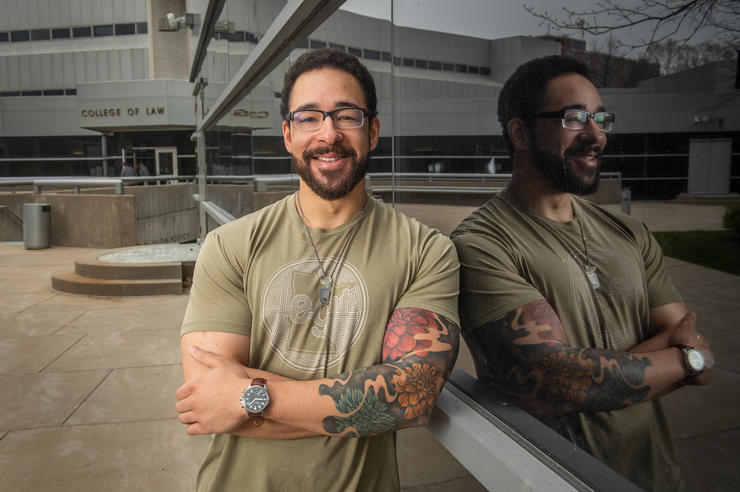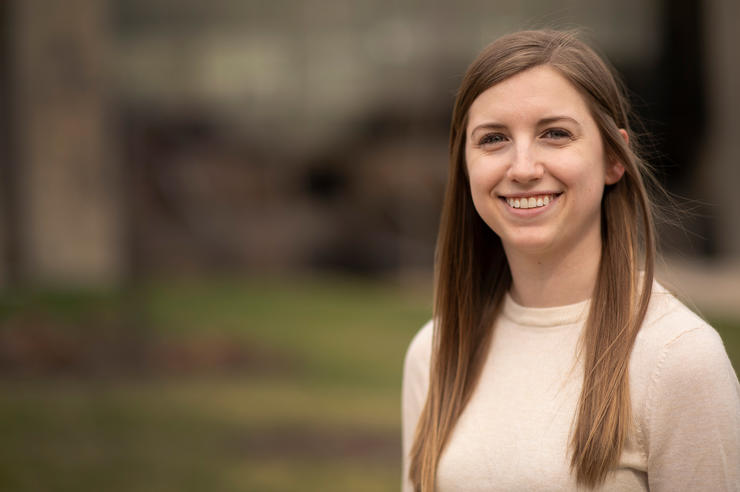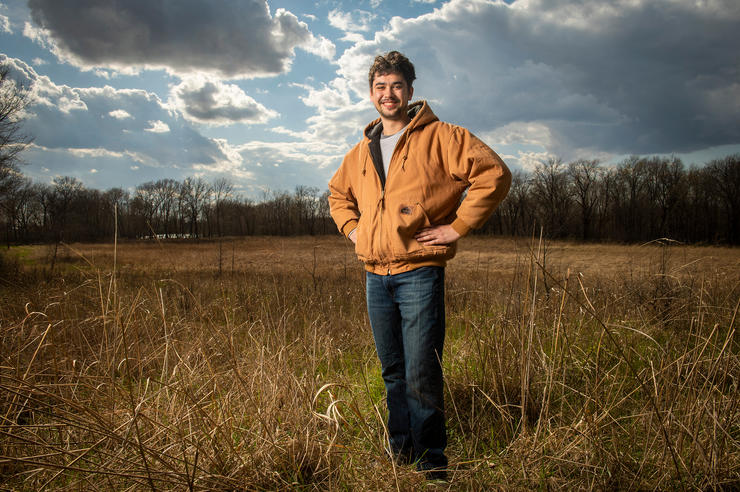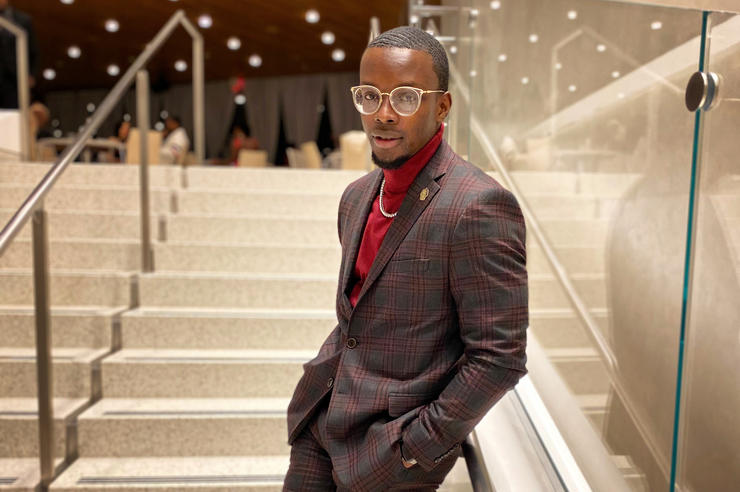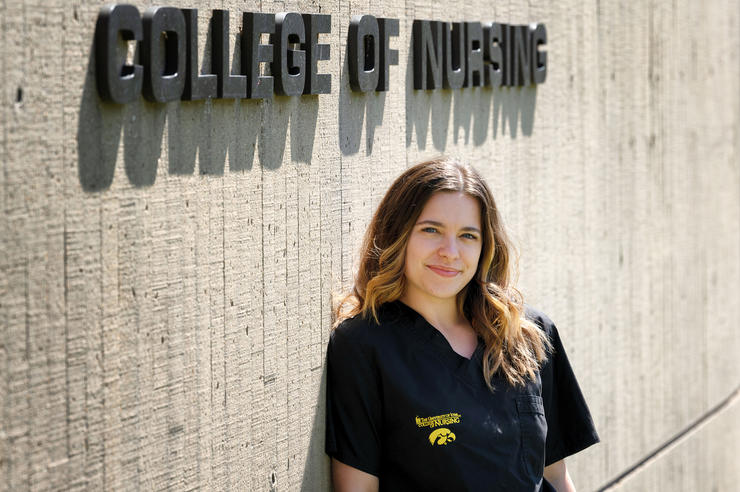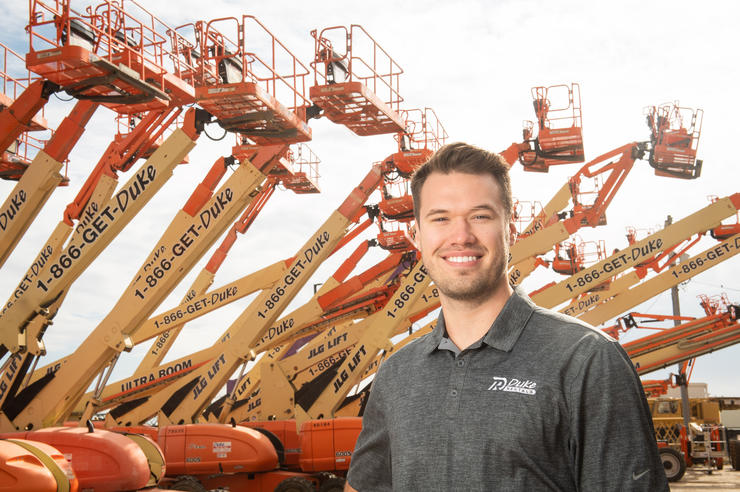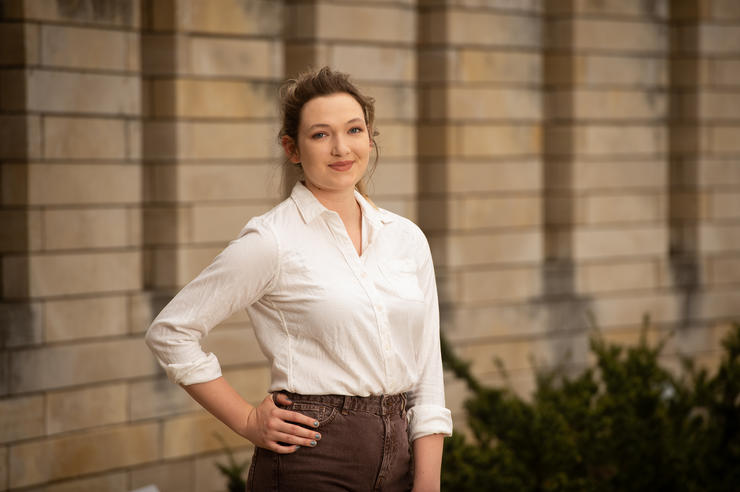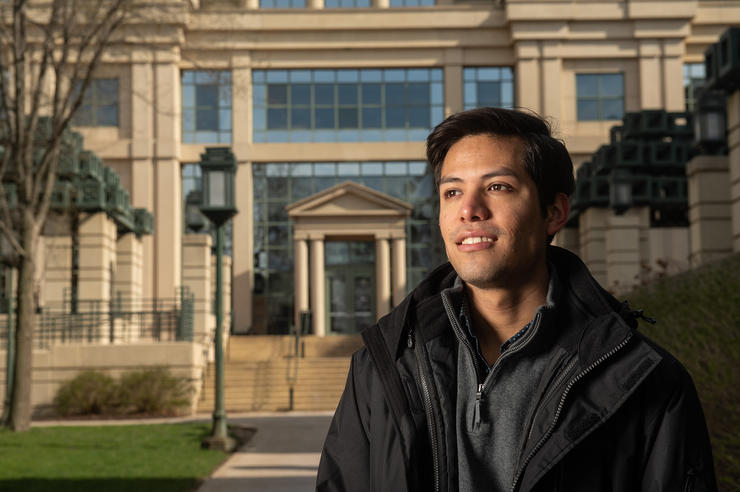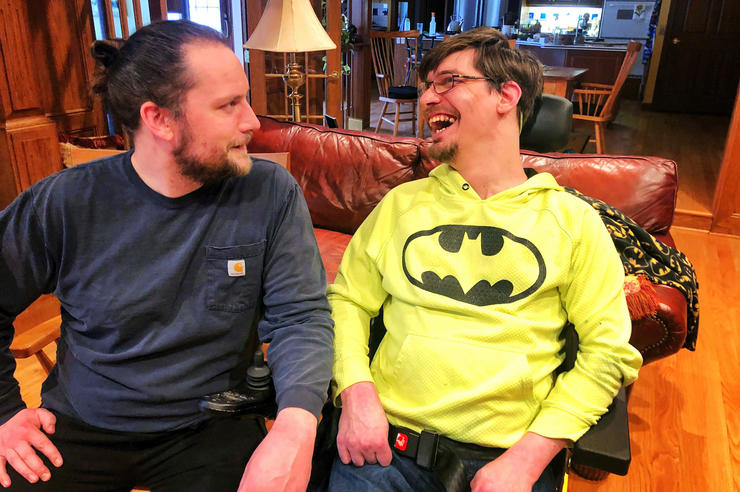Striving to protect musicians’ hearing
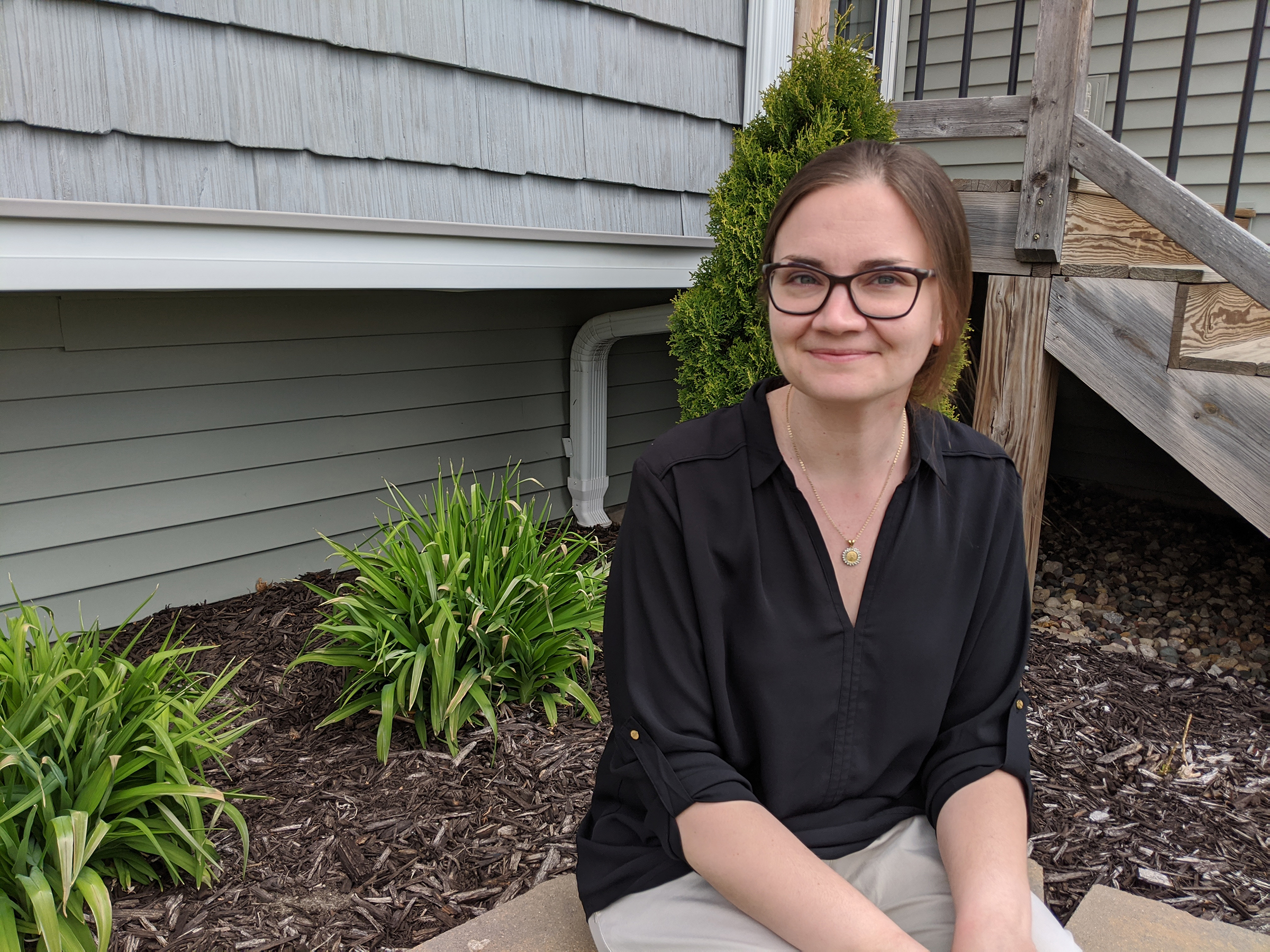
Kathryn Crawford grew up outside of Philadelphia loving music, taking lessons and working at the local music store for eight years starting as a teenager. So, the fact that music played into her PhD dissertation wasn’t particularly surprising. But her road to a doctorate in, of all things, occupational and environmental health, was a winding one.
“It’s interesting to look back and realize all the complicated, weird things that get you to where you are,” Crawford says
Degree: PhD, Occupational and Environmental Health
Hometown: Berwyn, Pennsylvania
Future plans: Apply for faculty and postdoctoral positions where she can continue to teach and do research.
Crawford will earn a PhD in May from the University of Iowa College of Public Health. Her research over the last couple of years has largely involved working with music instructors to find ways to preserve their hearing without compromising their ability to teach and perform.
“Musicians experience highly variable levels of sound, some of which are loud enough to cause hearing damage,” Crawford says. “There’s no simple solution. They are worried about hearing damage, but at the same time they can’t change what they hear or how they hear it. We need to find the right combination of protection strategies to reduce their risk of hearing loss.”
Occupational and environmental health wasn’t on Crawford’s radar when she was working on a BA in literature from West Chester University of Pennsylvania. After graduation, the music store she worked at was sold, and she began working in accounting for a local garden center. There, she joined their safety committee and became interested in sustainable food and environmental health, joining local volunteer organizations that managed community gardens and looked at water quality.
She decided to get a BS in environmental health at West Chester University and then developed an interest in occupational health during an internship with University of Pennsylvania Environmental Health and Radiation Safety. Adding a third university into the mix, her West Chester adviser, who had worked with University of Iowa faculty on past projects, suggested Crawford consider Iowa for grad school.
Crawford liked that the UI College of Public Health was home to several research centers, including a National Institute of Occupational Safety and Health Education Research Center.
Public health professionals promote healthy lifestyles to combat cancer, diabetes, and obesity; develop vaccines to stop the spread of infectious diseases; ensure the safety of the food supply, as well as new drugs and medical technologies; implement programs that protect workers’ health; and shape policies that ensure quality health care.
The University of Iowa College of Public Health is Iowa’s only accredited school of public health and is ranked among the top 20 schools and programs of public health in the nation.
But something else also impressed her early on about Iowa.
“I clicked on the button requesting information on the Iowa website and the very next morning I got a call from Dave Asa, the program coordinator for the department,” Crawford says. “He asked what questions I had and wanted to know what he could tell me about Iowa. That was awesome, and no other program did that. They just sent automated emails or something in the mail a couple of weeks later.”
Crawford moved to Iowa to start her master’s program in 2014. Before classes even began, she started work in a lab as a research assistant.
“It allowed me to learn about the research process and get comfortable with the lab, as well as meet people in the college,” Crawford says. “I appreciated having that under my belt so early.”
She became interested in noise and sound data while analyzing noise data from patient rooms at University of Iowa Hospitals & Clinics, a project that she participated in while working on her master’s degree.
“With music, there is so much variability in sound levels and not a lot of guidance in how best to sample these folks and what to do if it is too loud. There was a gap,” Crawford says. “I was able to hit on the skills I wanted to develop, and it was related to something that I love. It all came together as the perfect project.”
Crawford worked with the School of Music to sample musicians, the Department of Communication Sciences and Disorders to test hearing protection, and Community and Behavioral Health in the College of Public Health to examine how musicians felt about wearing hearing protection. She also ran computer simulations to estimate the effectiveness of various forms of hearing protection.
“Most of the time in my field, when you have to talk to folks about hearing protection, they grumble and say they aren’t worried,” Crawford says. “This was the first time I had a bunch of folks who said, ‘Yes, let’s sit down and talk about this. I’m interested in what you have to say.’ It was a delightful change of pace. I think the fundamental difference is we’re dealing with sound as opposed to noise. It’s not an unwanted byproduct of the task—it’s the actual job task.”
T. Renée Anthony, professor of occupational and environmental health and Crawford’s mentor, says Crawford has proven a valuable member of the College of Health.
“Kate has been a Heartland Center trainee, received pilot grant awards to conduct research, and has developed teaching skills by volunteering to develop lectures and serve as TA for several courses—including this semester, where she has transitioned with us all to figure out technology and techniques for virtual teaching on short notice,” Anthony says. “I’m going to miss her, but I know she will be a fantastic ambassador for the University of Iowa and our College of Public Health.”
“I believe everyone deserves to come home from work safe and healthy, and I want to continue to work with others to ensure that happens.”
Crawford says she appreciates the opportunities she’s had at Iowa, including a variety of research partnerships and experiences presenting at national conferences. She has been a teaching assistant this past year and says she has thoroughly enjoyed working with undergraduate students. She also is secretary-elect for the noise committee in the American Industrial Hygiene Association, a role she says she wouldn’t have thought about pursuing if she hadn’t been encouraged by other Hawkeyes. Crawford says the skills she has developed at Iowa have left her well prepared for the future.
“It’s been a great mix of support but also pushing you to do things on your own,” Crawford says. “I’ve pursued my own funding, so I’m leaving this program having written grant proposals that were funded. I’m leaving this program having collected my own primary data and having worked with the IRB (Institutional Review Board). I’ve talked to other folks in the field who left their PhD programs having never done any of that.”
The COVID-19 pandemic has caused a bit of a delay on future plans, Crawford says, but she is applying for faculty and postdoctoral positions where she can continue to teach and do research.
“I believe everyone deserves to come home from work safe and healthy, and I want to continue to work with others to ensure that happens,” Crawford says.
